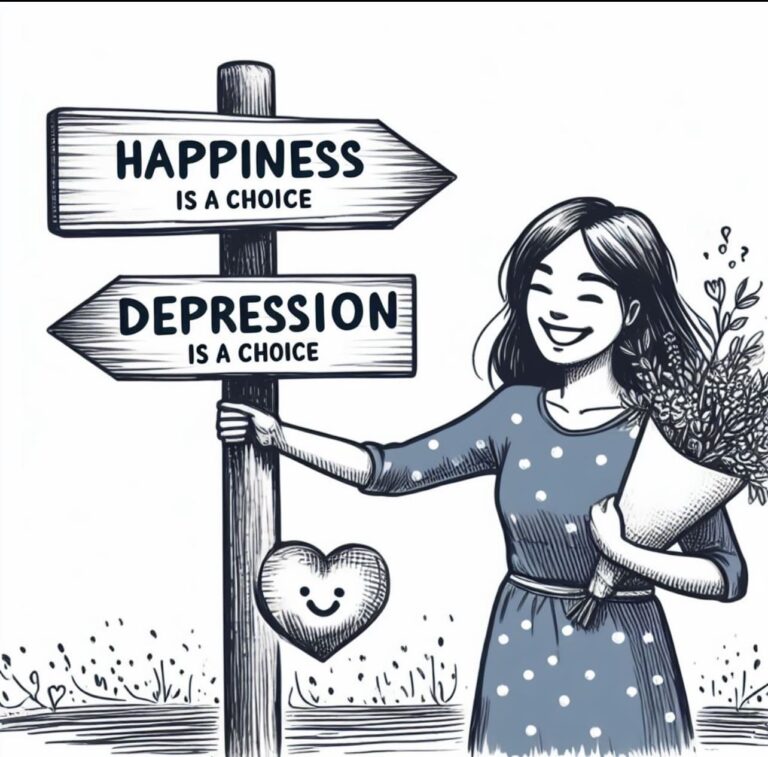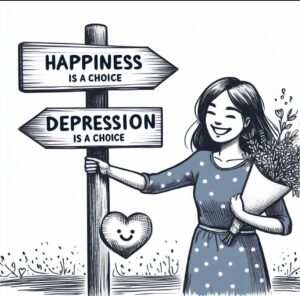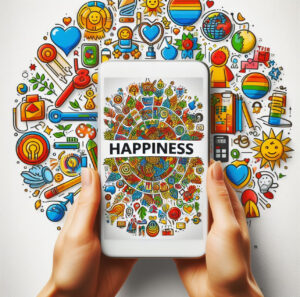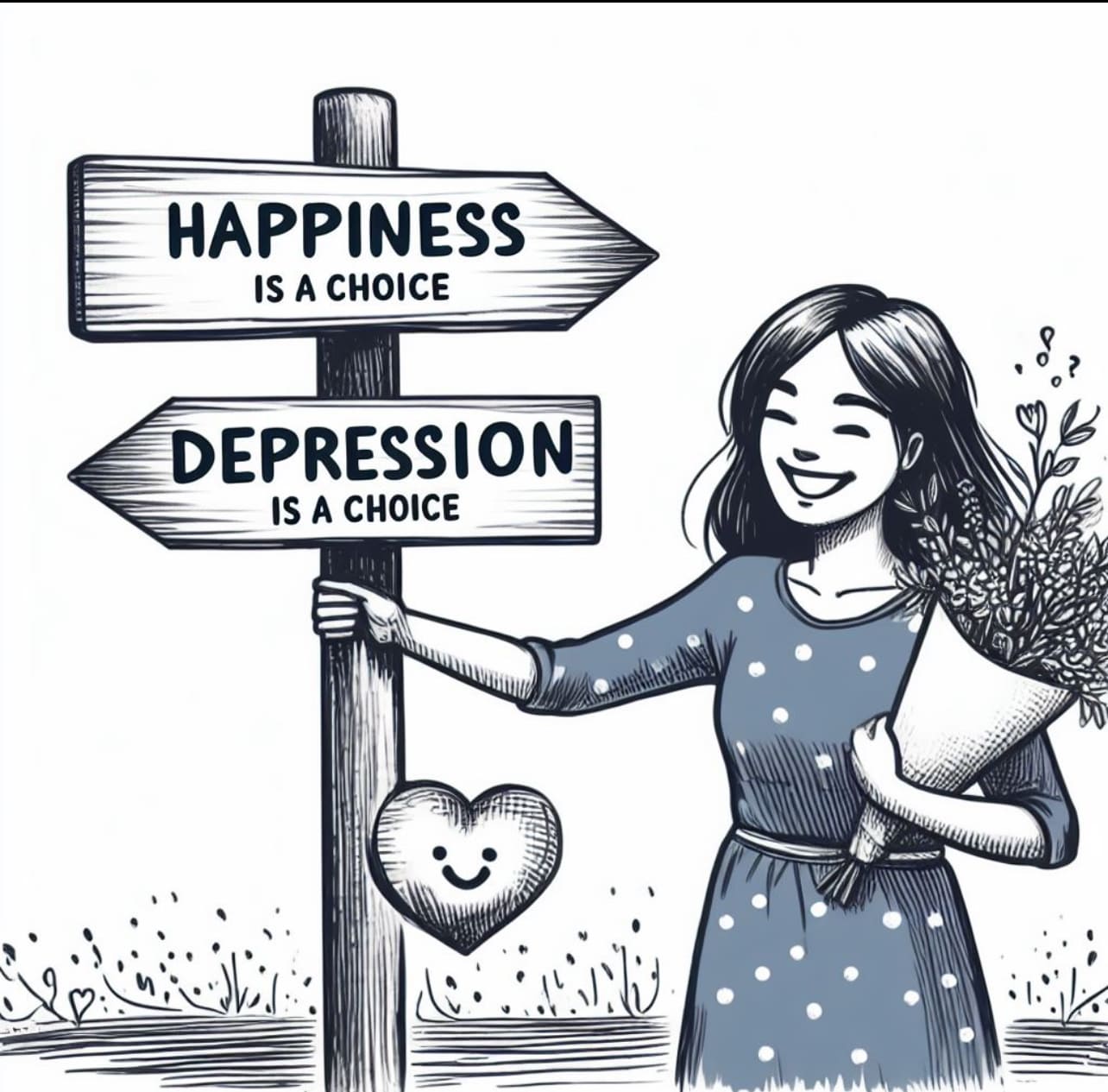

How Happiness Works: The Science Behind It
My curiosity about how happiness works began during my early college years. One day, while walking to my university, I saw two very different scenes of families having lunch. One was a family of five sitting under a tree on the roadside inside our campus. They looked so happy while sharing a simple meal. The parents were old, and I assumed that their children were at different levels of schooling because of their uniforms. The youngest was in elementary, the middle was in high school, and the oldest was in college. They were laughing and enjoying their food while listening to music from a small radio.


The other scene was a family in a restaurant that I passed by. They had a lot of food on their table but seemed very unhappy. As they were eating in a hurry, checking their watches, and barely talking to each other. They looked stressed and sad, unlike the family under the tree. I wondered how the first family could be so happy with so little while the second family could be so unhappy with so much. That’s when I decided to write this article.


Happiness is more complex than we think. There are several variables at play, some of which we can influence and some cannot. In this article, you will learn some surprising and fascinating findings from the science of happiness and how they can help us live happier and more meaningful lives.
Happiness is a choice.
Let us concentrate on the favorable facets of our lives, even when things are tough. One of the most surprising discoveries from the science of happiness is that our happiness is more about our mindset than our circumstances. We have more control over our happiness than we realize. Research shows that only about 10% of our happiness is affected by external factors, such as income, health, education, or marital status. The rest is by our genes (about 50%) and activities (about 40%).
It means we have more control over our happiness than we might realize. We can’t change our genes, but we can change our activities and habits. Besides, we can choose to do things that make us happy, such as expressing gratitude, cultivating optimism, practicing kindness, finding meaning, and building relationships.


Also, it means that people can adapt to almost any situation, good or bad, and still be happy. It is because of a phenomenon called hedonic adaptation, which is the tendency of our happiness to return to a baseline level after a positive or negative event. For example, if we win the lottery or a person loses a limb, people might experience a temporary boost or drop in happiness, but after a while, we will regain our former level of joy.
It does not mean we should not pursue our goals or avoid challenges. It only means we should not expect them to make us permanently happier or unhappier. We should appreciate what we have but also strive for what we want.
Happiness is not one thing but many things.
Another surprising discovery from the science of happiness is that happiness is not a single emotion but a complex and dynamic state that involves different components, such as pleasure, satisfaction, meaning, and engagement.
Pleasure is the feeling of enjoyment and gratification from sensory experiences, such as eating a delicious meal or listening to a favorite song. Satisfaction is the feeling of contentment and fulfillment from achieving our goals and meeting our needs. Meaning is the feeling of purpose and significance from contributing to something bigger than ourselves, such as a cause or a community. Engagement is the flow and immersion from doing something that challenges and excites us, such as playing a game or learning a skill.


These components of happiness are not mutually exclusive; they can coexist and complement each other. However, they are less critical for our contentment. Research shows it is the least important, and meaning is the most crucial component of happiness. Pleasure can make us happy in the short term, but it can also fade quickly and lead to boredom or addiction. Having a sense of purpose can lead to long-term happiness, but it may require making sacrifices and facing challenges.
The optimal balance of these components depends on our personality and preferences. Some people prefer more pleasure than meaning, while others prefer more meaning than pleasure. The key is to find what works for us and pursue it with passion and curiosity.
Happiness is good for us and for others.
A third surprising discovery from the science of happiness is that happiness is good for us and others. It is not only a state of being but also a state of doing. Furthermore, it can improve physical health, mental health, social relationships, productivity, creativity, and altruism.
Happiness can improve our physical health by lowering our heart rate and blood pressure, strengthening our immune system, reducing inflammation and pain, and increasing our lifespan.
Also, it can enhance our cognitive fitness by reducing stress, anxiety, depression, and cognitive decline. It can also improve our social relationships by making us more attractive, likable, cooperative, supportive, and trustworthy. Moreover, happiness can improve productivity and creativity by enhancing motivation, focus, memory, problem-solving skills, and innovation. For some, it can boost our altruism by making us more generous, compassionate, empathetic, and helpful.


Happiness can also create a positive feedback loop that spreads to others. In addition, it can be contagious; when we are happy, we tend to make others happy too. And when others are happy, they also tend to make us happy. It creates a virtuous cycle of happiness that can benefit ourselves and others.
Conclusion
In conclusion, these are just some surprising and fascinating findings from the science of happiness. They challenge our common assumptions about happiness and reveal some secrets and strategies to achieve it. Also, they show us why happiness matters, not only for ourselves but also for others.
Happiness is not a fixed or finite thing but a dynamic and diverse thing. It is not a destination but a journey; it is not a gift but a choice, and it is not a luxury but a necessity.
By developing a greater sense of purpose and meaning in life, we can enjoy the pleasure and satisfaction of the present while pursuing the meaning and engagement of the future. We can improve our health while enhancing our relationships and contributions. Ultimately, we can be happy and make others happy too.
If you have any questions or comments, feel free to leave them below. Thanks for reading, and I’ll see you at the next one!
References
TED. 2007, January 3. The surprising science of happiness | Dan Gilbert. YouTube. https://www.youtube.com/watch?v=4q1dgn_C0AU
Gilbert, D. 2004, February. The surprising science of happiness. TED Conferences. https://www.ted.com/talks/dan_gilbert_the_surprising_science_of_happiness




